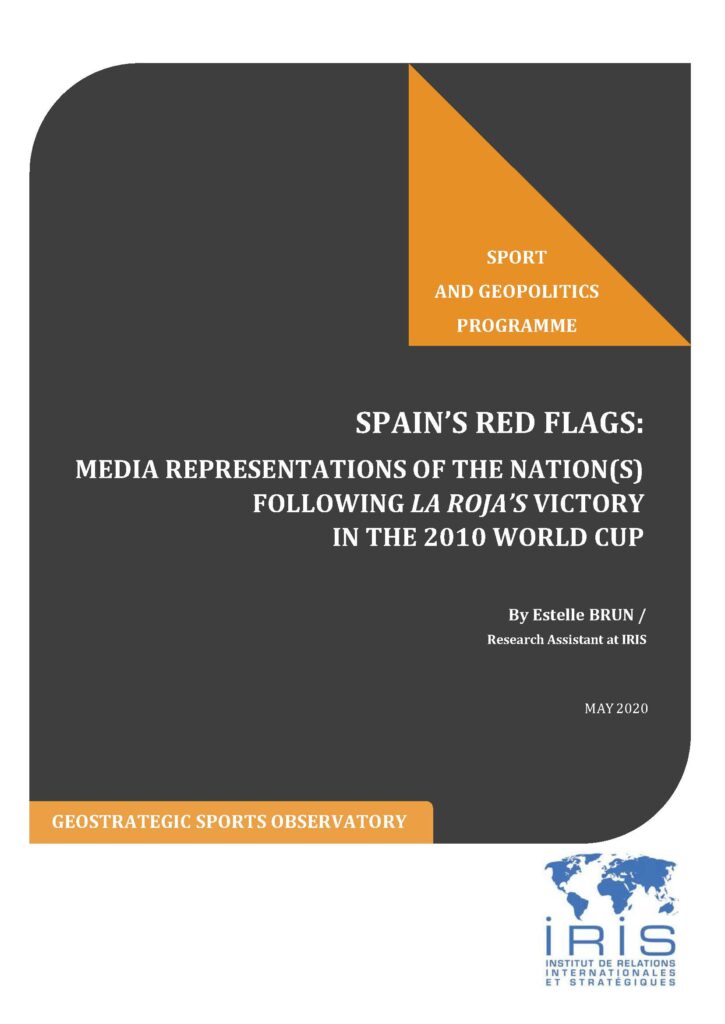Notes / Sport and Geopolitics
12 May 2020
Spain’s red flags: Media Representations of the Nation(s) following La Roja’s Victory in the 2010 World Cup

In 2017, Fútbol Club Barcelona (Barça) and national football team player Gerard Piqué sparked controversy when he declared himself in favour of the Catalan independence referendum, which was held in October, although it had been declared unconstitutional by Madrid a month prior and eventually violently repressed by Spanish police forces (Burgen, 2017; Piquer, 2017). Several days after participating in the referendum – and having reaffirmed his support of Catalonia’s self-determination claims on Twitter – a public training of La Roja (the red; i.e. Spanish national team) was cut short after supporters voiced their discontent with Piqué through banners and chants asking him to resign (Payne, 2017). Ahead of upcoming qualifiers for the 2018 Fédération Internationale de Football Association (FIFA) World Cup, Piqué declared that being part of the national team was not a competition of who was more patriotic (Doyle, 2017).
This episode epitomises interactions between regionalist tensions and national football in Spain, a country championing both top-class sport and national self-determination movements. Ten years ago, after La Roja – with Piqué – won the 2010 FIFA World Cup in South Africa, the BBC published an article entitled ‘Does football unite Spain?’. Although, such questions deserve to be open-ended, the BBC joined other mass media narratives in attempting to interpret symbolisms of renewed forms of patriotism behind La Roja’s triumph, which had sparked celebrations throughout the country, including in regionalist Catalonia and the Basque Country…

